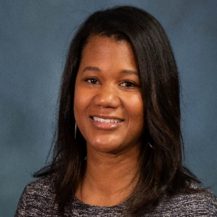JOIN US FOR THE 3rd ANNUAL RURAL RESILIENCE SYMPOSIUM!
Friday, August 04, 2023 | 11 a.m. - 4:10 p.m.
Location: Southern Regional AHEC, Third floor classrooms, 1601 Owen Drive, Fayetteville, NC 28304
According to the US Census Bureau, approximately 59 million people live in rural or remote areas. Yet, there is a significant health gap in comparison to urban counterparts documenting a host of barriers like poverty, acute social and behavioral health issues, lack of access to specialty care, and inadequate transportation to medical services. Mortality and longevity rates are falling behind in rural America, and the deep impact of COVID continues to test the resilience of rural communities and their residents. The US Department of Health and Human Services outlines that many of these challenges are deeply rooted and finding feasible solutions has been elusive, especially as many of the causes lie beyond clinical settings. However, rural regions are places of great vitality with strong spirits of collaboration. The purpose of this annual interdisciplinary conference is to: 1) Highlight key health priorities in rural settings, 2) Share practical strategies with medical and public health professionals that will accelerate the transformation to a more integrated and sustainable rural health system, and 3) Promote partnership among regional stakeholders to revitalize communities.
Speakers

NC Office of Rural Health Annual Update
Margaret “Maggie” Sauer, MHA joined DHHS’ Office of Rural Health as director in June 2017, after serving as the President/CEO of the Foundation for Health Leadership and Innovation (FHLI), in Cary, NC, for over five years. Prior to Sauer’s work at FHLI, she served as the Associate Executive Director of the NC Medical Society Foundation, directing programs to strengthen and expand primary care in North Carolina.
Prior to Sauer’s work with non-profit organizations, she served as the Director of Health Promotion and Disease Promotion at Duke University Health Center’s Department of Community and Family Medicine’s Division of Community Health. There she provided administrative management and coordination for 39 large and complex projects serving 67 North Carolina counties. Sauer also served as a Research Assistant Professor in Speech and Hearing Sciences at the University of North Carolina’s School of Medicine and Allied Health Sciences, specializing in assisting in the multidisciplinary evaluation of persons with developmental disabilities and matching them to assistive technology.
While Sauer is a native of Colorado, North Carolina has been her home for 30 years and her family shares an early history in North Carolina. She grew up on the rural eastern plains of Colorado and credits her childhood experiences for her passion to serve and work in rural communities. She received her Master of Health Administration from the University of North Carolina at Chapel Hill and her Master of Science from Colorado State University.
- Participants will be able to share at least two strategies to support rural health in communities in the past year.
- Participants will be able to identify at least one new partner they will engage in the coming year.

Opioid Response Teams: A Community Collaborative Approach
Jennifer Green, PhD is the Local Public Health Director for Cumberland County Health Department. She has served in this role since November 2019. In this role, Dr. Green works to carry out the vision of the health department, to have healthy people living in a healthy community. She oversees the delivery and promotion of public health services, strategies, and initiatives to the citizens of Cumberland County.
She comes to the community from Manhattan, Kansas where she served as the Director and Local Health Officer for the Riley County Health Department since 2016. In this role, she was responsible for overseeing all health department programs and services and collaborating with state and local community partners to improve the health of the community.
Dr. Green previously worked for the University of Oklahoma Health Sciences Center (OUHSC) as part of the team evaluating the Power Through Choices project, a pregnancy prevention program for youth living in group care foster homes. She has also worked for a non-profit teen pregnancy prevention program in San Antonio, Texas where she partnered with school districts, faith-based institutions, and youth serving organizations to coordinate the implementation of evidence-based pregnancy prevention programs.
Greg Berry
- Participants will be able to identify at least one adulterant in the illicit drug supply and at least two risks associated with having adulterant in the Cumberland County drug supply as it presents for people who use drugs.
- Participants will be able to outline at least two myths about Narcan use.
- Participants will be able to name three ways opioid settlement funds are used in Cumberland County.
- Participants will be able to explain two innovative strategies that public health officials and direct services providers can implement to combat opioid use in the community.

Rural Violence Prevention: Cultivating Safety in Our
Communities
Megan Clarke, MPH (she/her) has over 15 years of experience working to end violence, prevent and address trauma, and build equity. Megan currently works at the National Center for Child Traumatic Stress, where she provides technical assistance about trauma-informed organizational practices and service provision, with particular focus on anti-racism, LGBTQ+-affirming practice, and centering wellness of practitioners. She is also an Adjunct Faculty member in the Department of Public Health at Campbell University, where she teaches about trauma-informed and equity-centering public health, LGBTQ+-affirming care, values-based organizational leadership, and violence prevention. Prior to her role at the NCCTS, Megan was the Director of Statewide Capacity at the North Carolina Coalition Against Sexual Assault, where she worked for 6 years supporting rape crisis centers in movement building and developing organizational capacity. Megan has lived in NC for most of her life and currently lives in Durham, NC.
Missy Stancil, LCMHCS is a licensed clinical mental health counselor supervisor specializing in trauma, nature therapy, spiritually integrated psychotherapy, and supporting and celebrating LGBTQ+ communities. As a doctoral student and professor in public health, she focuses on rural health and researches nature-based wellness, community connectedness, and mental health.
- Participants will be able to identify risks and protective factors for violence in their communities and apply mitigation strategies.
- Participants will be able to identify strength-based approaches to incident response, including proactive harm reduction strategies and debrief approaches to minimize harm and reoccurrence.

Reproductive Health Care in Rural Areas
Taiwona L. Elliott DO, a native of North Carolina, is a board-certified family physician who graduated from Edward Via Virginia College of Osteopathic Medicine. She completed her family medicine residency at Womack Army Medical Center, Fort Liberty, North Carolina where she served as chief resident. Dr. Elliott completed the National Institute for Program Director Development (NIPDD) Fellowship. She has experience in academic medicine as prior Associate Program Director and Program Director. Her areas of interest include fostering resident education, LGBTQ+ care, women’s health, and diversity, equity, and inclusion in medicine. Dr. Elliott enjoys running, hiking, cycling, weight training, traveling, reading, and most of all spending time with her wife and dog.
- Participants will be able to review prescribing and monitoring of emergency contraceptives, including mifepristone and misoprostol, particularly in rural medical settings.
- Participants will be able to recognize current regulations governing reproductive health and identify ways to navigate medical misinformation and improve access to safe medical care.

Nutrition within Rural Communities
Rebecca Serra, MS, RD
- Participants will be able to describe common nutritional concerns and health conditions faced by those living in rural areas.
- Participants will be able to identify opportunities for improved nutrition education and utilization of food assistance programs available to those living in rural communities.

Linkage to Care Panel
Briana Parkins, BA/QP, CMC works with Alliance Health as a Community Health Worker Supervisor. Briana has spent the last 20 years working in the I/DD field in various roles. This work has enabled her to gain extensive knowledge of I/DD community and the needs to support the community.
Alinda Bailey, EMT-P, CP-C
Emily Ghassemi, PharmD
Taurus Tyson, BA
- Participants will be able to describe the importance of community-based care and available resources that enhance access to medical care for underserved populations.

